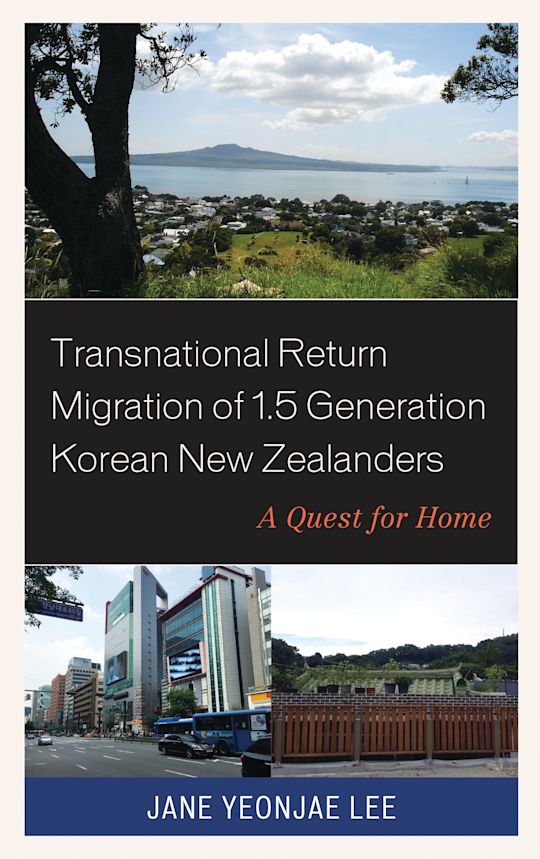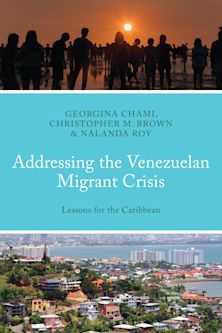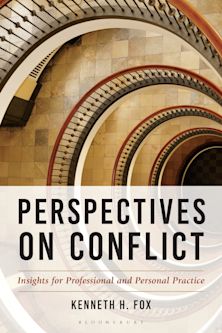- Home
- ACADEMIC
- Politics & International Relations
- Politics - Other
- Transnational Return Migration of 1.5 Generation Korean New Zealanders
Transnational Return Migration of 1.5 Generation Korean New Zealanders
A Quest for Home
Transnational Return Migration of 1.5 Generation Korean New Zealanders
A Quest for Home
This product is usually dispatched within 1 week
- Delivery and returns info
-
Free US delivery on orders $35 or over
You must sign in to add this item to your wishlist. Please sign in or create an account
Description
Why do immigrants return home? Is return migration a failure or a success? How do returnees settle back into their original homeland while retaining their connections to their host society? How do returnees contribute to their homeland with their skills gained from overseas? Transnational Return Migration of 1.5 Generation Korean New Zealanders: A Quest for Home seeks to answer these complex questions surrounding return migration through a case study of the 1.5 generation Korean New Zealander returnees. Jane Lee questions and unpacks the very meaning of “home” and “return” through the personal and intimate stories that are shared by the Korean New Zealander returnees. This book tells a compelling story of the strong desire contemporary transnational migrants feel to belong to one particular identity group. In addition, the author highlights the realities and disconnections of transnationalism as the returnees’ transnational activities and experiences change over time and space.
Table of Contents
Introduction: Entering the Field
1. Studying the ‘Everyday’ through a Transnational Ethnography
2. A Transnational Approach to Return Migration
Part II: Return, Home, and Development
3. Korea and its Diaspora
4. Why a Return ‘Home’?
5. Returnees in the Workforce and Knowledge Transfer
Part III: Return, Home, and Growth
6. Constructing Identities: Challenge, Negotiation, and Growth
7. Performing Identities: Re-creating ‘Home’ in Korea
Conclusion: Ongoing Quest for ‘Home’
Product details
| Published | Jun 04 2018 |
|---|---|
| Format | Hardback |
| Edition | 1st |
| Extent | 204 |
| ISBN | 9781498575812 |
| Imprint | Lexington Books |
| Illustrations | 6 b/w photos; 7 tables |
| Dimensions | 9 x 6 inches |
| Series | Korean Communities across the World |
| Publisher | Bloomsbury Publishing |
About the contributors
Reviews
-
Sandwiched between a myriad of scholarly studies on both the first and the second migrant generations, this book breaks new ground in several respects. It is an engaging enquiry into the lives, identities, and sense of home of a rarely studied yet important migrant cohort—the 1.5 generation—who left their home country when they were children and who now return. Second, it is an ambitious yet nicely nuanced transnational ethnography. It is also, to a certain extent, an ‘auto-ethnography,’ but never in a cloying way. Finally, it is written in an appealing, jargon-free narrative style which enhances its impact and scholarly significance.
Russell King, University of Sussex
-
With auto/ethnographic lucidity and analytical precision this book is a welcome addition to the limited literature on Korean New Zealander return migration. The book sheds light on the everyday experiences of the 1.5 generation of transnational migrants as global talent. Theoretically rich, empirically multi-layered, and thematically diverse, the book deals with a number of important issues with conceptual flair and narrative engagement.
Anastasia Christou, Middlesex University
-
This book provides an essential take on the fascinating lives of the 1.5 generation who are the human face of transnational migration stories in the twenty-first century. It sheds light on both the motivational and the emotional aspects of the transnational journey, which is ongoing and circular, and shows the complexity of identity forged between two national contexts, New Zealand and Korea. Such small-scale, personal accounts remind us that migration flows are made up of actual human beings, who are connected to one another through questions of identity, sense of nationhood, family, and social struggles of various kinds. The story is told with compassion and empathy, as well as rigourous scholarship.
Audrey Kobayashi, Patricia Monture distinguished university professor and Queen's research chair, Geography and Planning, Queen's University



































